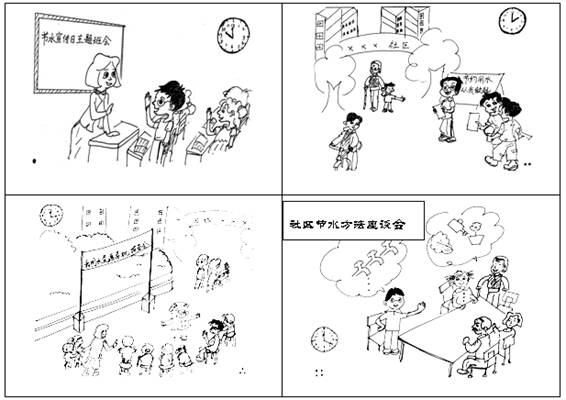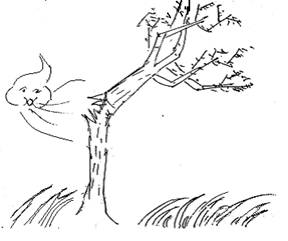-
Motherhood is a career to respect
A WOMAN renewing her driver’s license at the CountyClerk’s office was asked to state her occupation. She hesitated, uncertain how to classify herself.
“What I mean is,” explained the recorder, “do you have a job, or are you just a...”
“Of course I have a job,” said Emily. “I’m a mother.”
“We don’t list ‘mother’ as an occupation... ‘housewife’ covers it,” said the recorder.
One day I found myself in the same situation. The Clerk was obviously a career woman, confident and possessed of a high sounding title. “What is your occupation?” she asked.
The words simply popped out. “I’m a Research Associate (研究员) in the field of Child Development and Human Relations.”
The clerk paused, ballpoint pen frozen in midair.
I repeated the title slowly, then I stared with wonder as my pronouncement (声明) was written in bold, black ink on the official questionnaire.
“Might I ask,” said the clerk with interest, “just what you do in your field?”
Coolly, without any trace of panic in my voice, I heard myself reply, “I have a continuing program of research (what mother doesn’t), in the laboratory and in the field (normally I would have said indoors and out). Of course, the job is one of the most demanding in the humanities (any mother care to disagree?), and I often work 14 hours a day (24 is more like it). But the job is more challenging than most careers and the rewards are more of a satisfaction rather than just money.”
There was an increasing note of respect in the clerk’s voice as she completed the form, stood up, and showed me out.
As I drove into our driveway, buoyed up (激励) by my glamorous new career, I was greeted by my lab assistants – ages 13, 7, and 3.
Upstairs I could hear our new experimental model (a 6-month-old baby), in the child-development program, testing out a new vocal pattern.
I felt proud! I had gone on the official records as someone more distinguished and indispensable (不可缺少的) to mankind than “just another mother.”
Motherhood... What a glorious career! Especially when there’s a title on the door.
1. How did the female clerk feel at first when the writer told her occupation?
A. Cold-hearted. B. Open-minded.
C. Puzzled. D. Interested.
2. How many children does the writer have?
A. 3 B. 4 C. 7 D. 13
3.Why did the woman clerk show more respect to the writer?
A. Because she thought the writer did admirable work.
B. Because the writer cared little about rewards.
C. Because the writer did something that she had little knowledge of.
D. Because she admired the writer's research work.
4. What is the point of the article?
A. To show that how you describe your job affects your feelings toward it.
B. To show that the writer had a grander job than Emily.
C. To argue that motherhood is a worthy career.
D. To show that being a mother is hard and boring work.
难度: 中等查看答案及解析
-
Sydney Airport International Terminal—Arrival Area
SPECIALTY RETAIL
Newslink: Two separate Newslink stores cater to all your reading needs including newspapers, magazines and the latest bestsellers.
Downtown Duty Free: Make sure you shop at Downtown Duty Free for great savings on a range of items including perfume, alcohol, skincare and cigarettes. It’s your last chance before customs.
Beach Culture: A must for those into the latest in beach clothing. Top surfer street and fashion labels including Mambo, Stussy and Quicksilver, including children’s sizes.
DINING
Blue Sky Cafe: Speedy service leaves you time to keep an eye on the arrivals gate. Fresh milk, coffee, lemon juice, beer, whisky, ice-cream, soda water, cakes and dumplings are on sale.
Macdonald’s: hamburgers, fries, pancakes, toasted potatoes, muffins, Pepsi, Coca-Cola and chocolates—all your family favorites. Breakfast served until 10:30.
SERVICES
ATM: ATMs are conveniently located throughout Arrival and Departures. Dollars, pounds and francs and RMB are all available.
Vodafone Rentals: This communications center offers the very latest technology for mobile phone rentals, sales and serving.
1.Where is the passage likely to appear?
A. A morning newspaper. B. A monthly magazine.
C. A geography book. D. An official guide.
2.The underlined phrase “cater to” probably means ________.
A. satisfy B. afford C. support D. help
3.You may have better choices to deal with _________.
A. your hunger problem in Blue Sky Cafe and your thirsty problem in Macdonald’s
B. your thirsty problem in Blue Sky Cafe and your hunger problem in Macdonald’s
C. your hunger and thirsty problems in the Blue Sky Cafe
D. your hunger and thirsty problems in the Macdonald’s
难度: 中等查看答案及解析
-
Why doesn’t the unemployment rate ever reach zero? Economists, who generally believe that supply tends to meet demand, have long thought about this question. Even in good times, i.e. not now, there are people who can’t find work. And even in bad times, i.e. now, there are job openings. With over 14 million people out of work and looking for a job, you would think every available job would be filled. But that’s not the case. Not now and not ever.
On Monday, the Nobel Prize committee awarded the prize for economics to the three scholars who have done the most to explain this phenomenon. Two of the winners are Americans, Peter Diamond of MIT and Dale Mortensen of Northwestern. The third winner is Christopher Pissarides, who teaches at the London School of Economics and was born on Cyprus.
Like most of economics, what they have found about why the jobless and ready-employers don’t find each other seems obvious. You have to find out there is job opening you are interested in. Employers need to get resumes (简历). It takes a while for both employers and employees to make the decision that this is what they want. And these guys came up with a frame-work to study the problem of why people stay unemployed longer than they should and what can be done about it.
So what would today’s Nobel Prize winners do to solve the current problem of the unemployed? And does the awarding of the prize contribute to the politicians’ lowering joblessness?
Speaking from his north London home, Pissarides told The Associated Press the announcement came as “a complete surprise” though his work had already helped shape thinking on both sides of the Atlantic.
For example, the New Deal for Young People, a British government policy aimed at getting 18-24-year-olds back on the job market after long periods of unemployment, “is very much based on our work,” he said.
“One of the key things we found is that it is important to make sure that people do not stay unemployed too long so they don’t lose their feel for the labor force,” Pissarides told reporters in London. “The ways of dealing with this need not be expensive training – it could be as simple as providing work experience.”
1.According to the writer, which is true about finding jobs?
A. It is always difficult to find a job.
B. Everyone can find a job in good times.
C. Contrary to popular belief, it is easier to find a job in bad times.
D. It is possible to find a job even in times as bad as now.
2. What is it that leads to their winning the prize?
A. They have found the reason for unemployment.
B. They have put forward a set of ideas to deal with unemployment.
C. They have found out why people don’t want to be employed.
D. They have long studied the problem of unemployment.
3.Which of the following statements is NOT true according to the passage?
A. Pissarides thinks his work surprising.
B. The work of Pissarides has influenced many economists.
C. Some of the winners’ ideas have been put into practice.
D. It is probable that unemployed young people in Britain benefit from Pissarides’ work.
4. According to Pissarides, _________ is effrctive in dealing with unemployment.
A. spending large sums of money on training
B. teaching some knowledge of economics
C. providing work experience
D. keeping people unemployed for some time
难度: 中等查看答案及解析
-
Are some people born clever, and others born stupid? Or is intelligence developed by our environment and our experiences? Strangely enough, the answer to both these questions is yes. To some extent our intelligence is given us at birth, and no amount of special education can make a genius out of a child born with low intelligence. On the other hand, a child who lives in a boring environment will develop his intelligence less than one who lives in rich and varied surroundings. Thus the limits of a person's intelligence are fixed at birth, but whether or not he reaches those limits will depend on his environment. This view, now held by most experts, can be supported in a number of ways.
It is easy to show that intelligence is to some extent something we are born with. The closer the blood relationship between two people, the closer they are likely to be in intelligence. Thus if we take two unrelated people at random(随机地) from the population,it is likely that their degrees of intelligence will be completely different. If on the other hand we take two identical (完全相同的) twins they will very likely be as intelligent as each other. Relations like brothers and sisters, parents and children, usually have similar intelligence, and this clearly suggests that intelligence depends on birth.
Imagine now that we take two identical twins and put them in different environments. We might send one, for example, to a university and the other to a factory where the work is boring. We would soon find differences in intelligence developing, and this indicates that environment as well as birth playsa part. This conclusion is also suggested by the fact that people who live in close contact with each other, but who are not related at all, are likely to have similar degrees of intelligence.
1.Which of these sentences best describes the writer’s point in Para. 1?
A. To some extent, intelligence is given at birth.
B. Intelligence is developed by the environment.
C. Some people are born clever and others born stupid.
D. Intelligence is fixed at birth, but is developed by the environment.
2. It is suggested in this passage that_______.
A. unrelated people are not likely to have different intelligence
B. close relations usually have similar intelligence
C. the closer the blood relationship between people, the more different they are likely
to be in intelligence
D. people who live in close contact with each other are not likely to have similar degrees
of intelligence
3. In Para. 1, the word "surroundings" means_______.
A. intelligence B. life
C. environments D. housing

4.The best title for this article would be_______.
A. On Intelligence
B. What Intelligence Means
C. We are Born with Intelligence
D. Environment Plays a Part in Developing Intelligence
难度: 中等查看答案及解析

